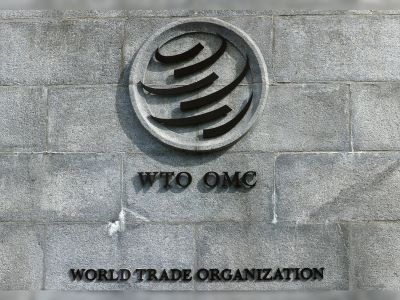Context-
The dynamics surrounding the Investment Facilitation for Development (IFD) agreement at the World Trade Organization (WTO) have sparked significant debate, particularly in light of India's stance on the matter.
Launch and Evolution of IFD Negotiations
The inception of negotiations for the IFD agreement dates back to 2017, initiated by 70 countries through the Joint Statement Initiative. UNCTAD data highlights that global Foreign Direct Investment (FDI) flows reached $1.39 trillion in 2020, emphasizing the importance of creating legally binding provisions for investment facilitation.
This plurilateral endeavor aimed to create legally binding provisions to streamline investment flows. The finalization of the agreement in November 2023 garnered support from approximately 120 out of 166 WTO member countries, constituting over 70% of the membership.
Legal Framework and Plurilateral Agreements
The proposal to include the IFD Agreement as a plurilateral agreement within Annex 4 of the WTO Agreement raised questions regarding its legality. However, Article II.3 of the WTO Agreement explicitly permits plurilateral agreements, binding only those member countries that opt to participate without imposing obligations on others.
India's Contentions
India played a pivotal role in opposing the inclusion of the IFD agreement in the WTO rulebook, citing concerns over the negotiation process and the fundamental question of whether investment falls within the purview of the WTO.
India's Concerns
● Investment and Trade Nexus
India contests the idea of including investment within the realm of the WTO, arguing that investment does not inherently entail cross-border trade. Despite economic literature emphasizing the interconnectedness of trade and investment, India maintains that investment's inclusion in the WTO framework remains contentious.
● Process of Negotiations
India highlights procedural irregularities in the negotiation process, referencing previous WTO decisions that precluded discussions on trade and investment. The absence of unanimous agreement to launch negotiations on the IFD agreement raises questions about its legality.
Analysis of India's Contentions
● Investment and Trade Nexus
While India's assertion regarding the separateness of investment and trade merits consideration, empirical evidence suggests a significant overlap between the two domains. Global value chains, constituting around 70% of international trade, underscore the intertwined nature of trade and investment. Modern trade agreements, such as RCEP and CPTPP, incorporating investment provisions further exemplify this linkage.
● Procedural Legitimacy
India's adherence to past decisions limiting discussions on trade and investment underscores its commitment to procedural integrity within the WTO. However, the applicability of these decisions to plurilateral negotiations remains ambiguous. The absence of consensus to launch negotiations on the IFD agreement raises questions about the legitimacy of its inclusion within the WTO framework.
Reinvigorating the WTO
● Role of Plurilateral Agreements
Amidst the WTO's legislative stalemate, plurilateral agreements like the IFD offer a pathway to address contemporary trade challenges. By sidestepping the consensus requirement for multilateral negotiations, plurilateral agreements enable proactive rule-making in areas of shared interest among participating countries.
● India's Strategic Considerations
As India ascends to become the world's third-largest economy, its approach to plurilateral agreements assumes heightened significance. Embracing initiatives like the IFD agreement could position India as a proactive player in shaping global trade norms, aligning with its economic ambitions and international stature.
Conclusion
The IFD negotiations at the WTO epitomize the complexities surrounding trade and investment governance in the contemporary global landscape. India's reservations regarding the inclusion of investment within the WTO framework reflect broader debates on the organization's mandate and decision-making processes. While legal nuances and procedural concerns warrant careful consideration, embracing plurilateral agreements offers a promising avenue to revitalize the WTO's legislative function and adapt to evolving trade dynamics.
|
Probable Questions for UPSC Mains Exam-
|
Source- The Hindu
























